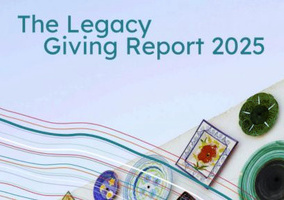Faith and cultural identity play a significant role in how and why people give to charity in memory of a loved one, according to a new report by Legacy Futures and Smee & Ford.
Published today, the In-Memory Giving in Multi-Cultural Britain report says that faith and culture shape the channels and causes to which people donate, with religious individuals more likely to give in memory than those who are not.
The report says that over the past year, over one-third of adults in the UK have made an in-memory donation.
Health charities receive the largest share of in-memory donations overall, the report says, but there are variations between demographics with Asian and Black donors more likely to give to faith or community-based charities.
Faith important even to non-religious donors
The report – based on desk research, a consumer survey and focus groups with charity supporters – says that charitable giving is closely linked to all faiths.
“Shared values and religious traditions drive faith communities to give to charity after someone dies, be it back to a community, charity or through donations of food or volunteering,” it says.
The report says Christian supporters are more likely to give at funerals, while Muslim, Hindu, Sikh and Jewish supporters are more likely to engage in in-memory giving around anniversaries, remembrance events or through other routes.
However, it adds that faith and religious traditions can still be important even if the supporter does not describe themselves as “religious”.
“The faith of the loved one being remembered may drive their decisions or they may fall back on traditions they grew up with, even if they’ve moved away from their faith or community,” it says.
‘In-memory giving is deeply personal’
Anna Turner, head of research and insight at Legacy Futures, said: “In-memory giving is deeply personal, often tied to the identity and values of the person being remembered.
“Our research shows that faith and culture can play a powerful role in shaping how people remember loved ones through giving.
“This creates a clear opportunity – and responsibility – for charities to ensure their in-memory offerings are welcoming and inclusive to all.
“Whether it’s auditing communications to ensure there are no barriers to entry, aligning with wider equality, diversity and inclusion objectives, or using storytelling to demonstrate representation in an authentic way, there’s much that charities can do to make sure no supporter feels excluded at such an important time.”
Related articles











